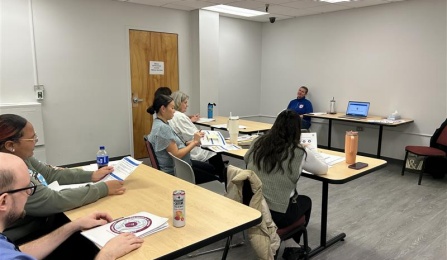The Institute on Trauma and Trauma-Informed Care
Trauma-informed care provides the framework for individuals, organizations and systems to engage in universal precautions for individual, historical and systemic trauma by using the values and principles of safety, trustworthiness, choice, collaboration and empowerment.

Providing research and training for organizations on trauma and trauma-informed care since 2012.
The UB School of Social Work’s Institute on Trauma and Trauma-Informed Care (ITTIC) helps organizations and individuals understand the effects of trauma and ensure that service systems do not retraumatize vulnerable populations. Through collaborative partnerships and funded research, we work with agencies to provide training, consultation, coaching and evaluation to facilitate trauma-informed culture change and meet your organization’s goals.
Work With Us
We collaborate with agencies and organizations to provide education, training, consultation, coaching, and evaluation services on trauma and trauma-informed approaches.
Our services are always tailored to your organization's unique needs. Collaborate with us to develop a work plan that meets your goals and aligns with best practices.

The ITTIC team collaborated with the Kenmore-Tonawanda School District to facilitate trauma-informed culture change.
Latest News
11/13/25 - ITTIC and BryLin Hospital's collaboration has begun, starting with the first cohort out of four, with 12 hours of professional development, allowing them to apply for the Foundations of Trauma-Informed Care Micro-Credential badge. After the foundational education is complete, BryLin and ITTIC will work with a core champion team that will implement the sustainability process through the ten key development areas in our Organizational Change Manual.

Useful Resources

Request free access to our manual. Use our step-by-step guide to plan, implement and sustain trauma-informed cultural change in your organization.

Improve your understanding of trauma — or train your entire staff on the basics of trauma-informed care — with our online, self-study course.

Micro-credentials allow you to meet your personalized learning needs by gaining knowledge and skills in areas that are relevant to your academic or professional goals.
